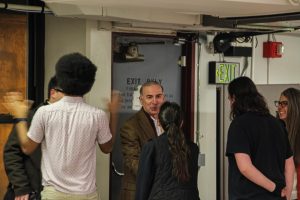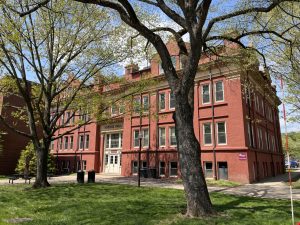This Week in History
Woodstock promoted peace and music
August 31, 2020
With many social events being cancelled or restricted due to COVID-19 concerns, it may be interesting to discuss a time when around 500,000 young people traveled to a small town in New York to promote “3 days of peace and music.”
Woodstock was held from August 15 to August 18 in 1969, during an era of unrest with the Vietnam War raging on. Given the emphasis on peace, some bands played and spoke out against the war, namely Country Joe and The Fish’s “Vietnam Song.”
Woodstock began as a plan by Michael Lang, Artie Kornfield, Joel Rosenman, and John P. Roberts to open up an audio recording studio near the town of Woodstock. The idea of hosting a concert came up when concern over financing the studio arose.
Failing to scout out other locations, the group eventually decided on using the farm of Max Yasgur to hold the concert. Of course, they had only expected around 50,000 individuals to attend, around one tenth of how many actually came.
As ticket sales began to skyrocket, the organizers knew that it would be almost impossible to construct ticket booths and fences. Because of this, they turned a ticketed event into a free concert that anyone could come to. Tragically, however, two people ended up losing their lives in Woodstock due to a tractor accident and an overdose.
Many commentators would ignore the antiwar sentiments espoused at the festival in favor of attacking hippie culture, such as when an editor at The Times likened the sensibility of the event to “The impulses that drive the lemmings to march to their deaths in the sea.”
Woodstock is generally remembered as a chaotic but incredibly meaningful event. It was one of the ’60s youth’s greatest chances to voice their grievances with the Vietnam War and mainstream American culture.
In a way, the grievances of the youth of the past have not changed much compared to the youth of today. Many college-aged students today feel as though they live in a world that doesn’t care to watch them succeed. Young adults graduating college often start out their lives riddled with debt, and they are unable to air their concerns because the government prefers to focus on causing conflicts thousands of miles away.

















